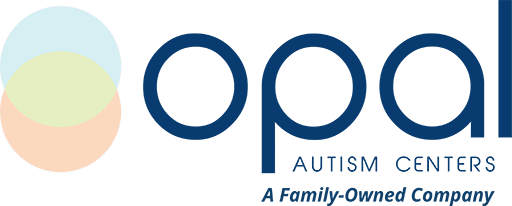Kids with autism often face difficulties in several areas crucial for a successful learning and social environment in school. School readiness is essential for early childhood development, especially for children with Autism Spectrum Disorder (ASD).
School readiness for children with autism involves teaching skills that include not only academic abilities but also emotional, social, and physical abilities. These skills are the building blocks of a successful academic journey for autistic children.
Why School Readiness Is Crucial for Children with Autism?
Preparing children with autism for the academic, social, and emotional demands of school life can be challenging without considering school readiness. These challenges include, but are not limited to,
- Social Skills: Interacting effectively with peers and adults is fundamental to the classroom environment and a learning environment. Sharing, taking turns, understanding personal space, and interpreting body language and facial expressions are part of the social skills that can prepare your child for school.
- Communication Skills: Effective communication involves the ability to express ideas and emotions and the capability to understand others. This is particularly challenging for children with ASD, as delayed speech development or difficulties in engaging in typical conversations can sometimes disrupt the learning environment.
- Cognitive Skills: These involve the child’s ability to engage with and process information, which is critical for learning. Central to navigating the academic challenges of school, these skills include attention, memory, and problem-solving.
- Emotional Regulation: Managing emotions is crucial for children with autism to handle the frustrations and anxieties of a school environment. Developing strategies to cope with sensory sensitivities and emotional upheavals is a key objective in school readiness.
- Physical and Motor Skills: Fine motor skills are necessary for tasks such as writing, using scissors, or manipulating small objects, all of which are activities frequently encountered in the classroom.
Strategies for School Readiness
- Individualized Approach: Every child with autism has their own unique challenges and criteria for an effective learning environment. It’s important for school readiness programs to address each challenge and build on their existing skills.
- Family and Community Involvement: The readiness of a child can be significantly improved by the support from families and the community. Parents and caregivers are encouraged to actively prepare their children for school, as their engagement can make a substantial difference in the child’s educational journey.
- Inclusive Education: It’s important for children with ASD to feel included without letting ASD take control of the child’s sense of belonging. To do this, schools should be well-equipped to create an inclusive environment that can cater to the diverse needs of children with ASD. Trained staff, appropriate learning materials, and a supportive culture can allow the child to be comfortable in a classroom setting knowing they are provided with the right support.
- Behavioral Interventions: Behavioral approaches to school readiness, such as Applied Behavior Analysis (ABA). ABA therapy involves monitoring progress and stimulating cognitive, emotional, and academic preparedness for a successful learning environment.
- Social Stories and Role-Playing: Using social stories and role-playing can help children understand and practice appropriate social interactions in a controlled environment before they face real-life situations.
- Parent and Teacher Training: Parents and teachers equipped with the right strategies can benefit children with ASD by working with them to improve their communication skills and behaviors in a classroom setting and a learning environment to create an autism-friendly environment.
- Assistive Technology: Assistive technologies, like Augmentative and Alternative Communication (AAC) devices or educational software, can be particularly useful for non-verbal children or those who learn better through visual aids and interactive activities.
Final Word
School readiness for a child with autism is a collaborative effort that requires patience, understanding, and specialized strategies. At Opal, our ABA therapy and commitment to creating genuine connections establish a foundation for transformative experiences. Helping your child develop and build on the necessary skills while providing the right support, we help autistic children adapt and thrive in their academic endeavors, unlocking their true potential to shine. Schedule a free clinical consultation at Opal Autism Center today.

